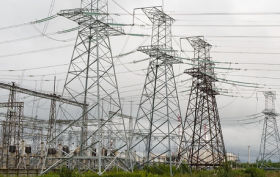Baltic States – CIS, Energy, EU – Baltic States, Legislation, Lithuania
International Internet Magazine. Baltic States news & analytics
Friday, 19.04.2024, 13:36
Sweden's nuclear plans favorable for Lithuania
 Print version
Print version |
|---|
Dalius Misiunas, CEO of the Lietuvos Energija energy holding, says the Swedish decision means low prices for Lithuania, which has the NordBalt power inteconnection with Sweden – the power prices may decline due to Sweden's decision to generate 100% of electricity from renewable resources by 2040, not due to tax waiver. In his opinion, this will lead to considerable increase of electricity supply.
"As far as I saw, speaking about additional 18 terrawatt-hours – it is additional supply and should reduce the electricity prices on the Nord Pool market. (...) This leads to a situation when the decision causes lower prices in Lithuania, although Swedish consumer costs may increase," said Misiunas.
The Lietuvos Energija CEO also stated that a longer duration of the low electricity prices may become a precondition for yet another power link with Sweden. "The logic is simple – today we will have a substantial difference in prices between Lithuania and Sweden, and the 700-megawatt NordBalt is not suficient to level the prices."
Meanwhile, Energy Minister Rokas Masiulis says that power prices will not remain low for a long time, as Sweden has decided to build new reactors, and their electricity will be more expensive than that of the old reactors.
"Sweden's political parties have reached a consensus decision that they did not only decide to lower taxes for nuclear energy starting next year until they reach zero – if I'm not mistaken, they are currently about 5 euros per megawatt-hour, and look at the (low) prices we see in Sweden. Furthermore, they opened discussions into construction of new nuclear reactors, therefore, the electricity prices are unlikely to stay where they are now. The new nuclear energy will not be as cheap as the old one," Masiulis said at the Industrialists' Confederation on Monday.
Journalist Rytas Staselis says that, if the operator of the Astravyets Nuclear Power Plant attempts selling its electricity in countries of the Nord Pool Spot system, it would get a maximum of 25-30 euros per megawatt-hour in the best-case scenario. On the other hand, the Belarusian N-plant built for Russian loans would have to compete with Swedish reactors on the Nord Pool Spot, and the latter have already paid off.
Sweden's center-left government on June 10th agreed with the opposition on further development of nuclear energy in the sector and revise the earlier plans of gradually discarding nuclear energy in the country. The agreement allows building new reactors to replace the old ones.
In the nearest future, the country could build 10 new reactors that would be in operation until the country reaches its objective of fully renewable energy in 2040. However, the agreement envisages that it does not mean decommissioning of all nuclear facilities in 2040.
So far, Sweden has suspended three reactors, and three nuclear power plants, which used to generate 38% of the country's energy needs, include nine reactors, and three of them should be brought to full stop by 2020.








 «The Baltic Course» Is Sold and Stays in Business!
«The Baltic Course» Is Sold and Stays in Business!

